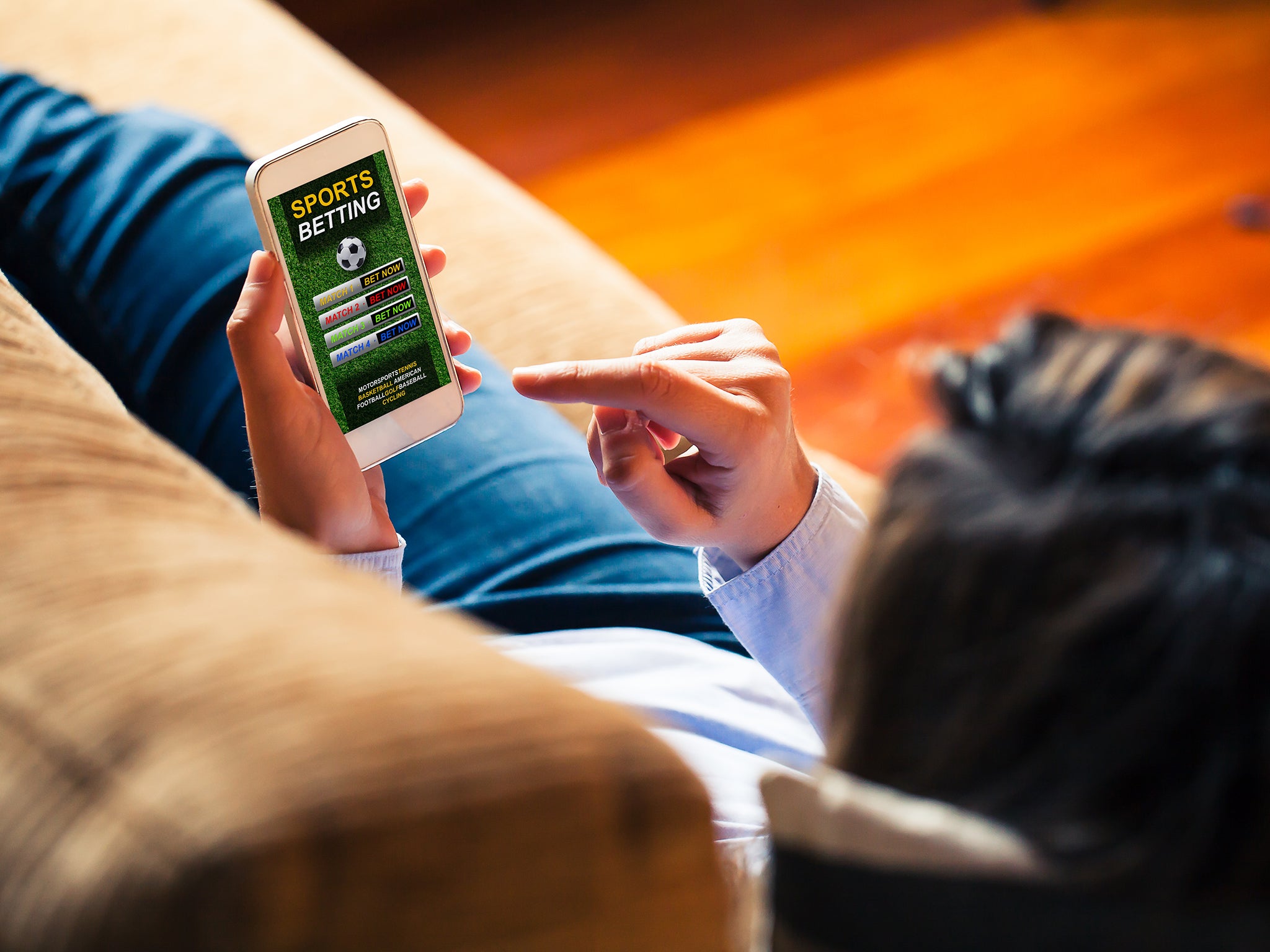Number of women treated for gambling doubles in five years
‘Women’s motivations for gambling are to escape the pressure of everyday life,’ says head of GambleAware charity

The number of women treated for gambling has doubled in five years, with up to a million women at risk of experiencing gambling-related problems, according to a new study.
Research carried out by GambleAware found that the number of women receiving treatment for the problem had surged from just over 1,100 in 2015-16 to almost 2,500 in 2020-21.
But the UK’s leading gambling charity has warned that this may only represent a small proportion of the women experiencing harm linked to gambling.
Zoe Osmond, the chief executive of GambleAware, told The Independent that the figure of around a million women was based on a projection from their own treatment support service figures from 2019 to 2021.
Ms Osmond defined gambling harm as betting more than you can afford, being “totally preoccupied” with gambling, attempting to control and stop gambling without success, and gambling with increasing amounts of money.
She noted that women are more likely to gamble with scratchcards, play bingo or take part in online games, as she warned that the organisation is seeing increasing numbers of women gambling online.
“Women’s motivations for gambling are to escape the pressure of everyday life, such as looking after kids, helping them with homework, managing finances and juggling work too. It’s a form of escapism,” Ms Osmond added.
“The reality is, unlike men, women often feel much more stigmatised, and that leads them to be more embarrassed and ashamed of what they are doing and less likely to access help and guidance.”
Meanwhile, men are far more likely to bet on sports, take trips to the bookies and use fixed-odds betting terminals, Ms Osmond said.
She added: “Men are more about the thrill, the adrenaline and the hope for a big win, so they are chasing losses. Gambling is still quite a gendered issue. Women may think their gambling is safe but they must be aware of the warning signs to stop it spiralling out of control.”
We know the easy availability of online gambling leads many women to games that appear innocent and socially acceptable
Ms Osmond said that gambling is far more prevalent than it once was – adding that “it is everywhere”.
She said: “Covid means more time at home. More time online. Life comes with increasing insecurity as we emerge from a pandemic. Gambling is a form of distraction and escapism.
“Anyone concerned about their gambling, or that of a loved one, can visit BeGambleAware.org for free, confidential advice and support, or the National Gambling Helpline is available on 0808 8020 133 and operates 24 hours a day, seven days a week.”
Researchers found that two in five women who are suffering high levels of harm from their gambling may avoid pursuing support or treatment as a result of the stigma that continues to surround the activity.
Liz Karter, a psychotherapist who specialises in gambling addiction in women, said: “Gambling behaviours manifest themselves differently in women than in men. For example, we know the easy availability of online gambling leads many women to games that appear innocent and socially acceptable.
“The games seem safe and familiar, as they are so similar to the free-play digital games we are all now used to playing. In addition, the hopes of financial gains can prove a powerful motivator. While gambling doesn’t always lead to harm, it’s vital women are aware of early warning signs.”
GambleAware on Monday launched a new campaign to shine a light on the warning signs of problem gambling for women, and to draw attention to the help available.
The charity notes that the term “gambling harms” refers to a detrimental impact on people’s “resources, relationships and health”, and lists warning signs such as losing your sense of time, spending more money than you can afford to, and making sure your gambling is hidden from those close to you.
Bev, a 59-year-old woman from Newcastle upon Tyne, said: “I started gambling online when I was in my mid-40s. At the time, it felt harmless – a £10 bet here and there.
“But it quickly escalated, and I found that I spent all my free time gambling and making up excuses not to socialise. I became so engrossed in the apps that I wasn’t aware of much going on around me.”
Bev made sure her gambling was kept a secret from others, and eventually wound up in a huge amount of debt.
“I tried various treatments, but it wasn’t until my sister helped me seek support through Gordon Moody that I found something that worked,” she added. “Since walking through the doors three years ago, I haven’t placed a bet. They provided me with non-judgemental advice and equipped me with the tools to live gamble-free for life.”
Subscribe to Independent Premium to bookmark this article
Want to bookmark your favourite articles and stories to read or reference later? Start your Independent Premium subscription today.

Join our commenting forum
Join thought-provoking conversations, follow other Independent readers and see their replies